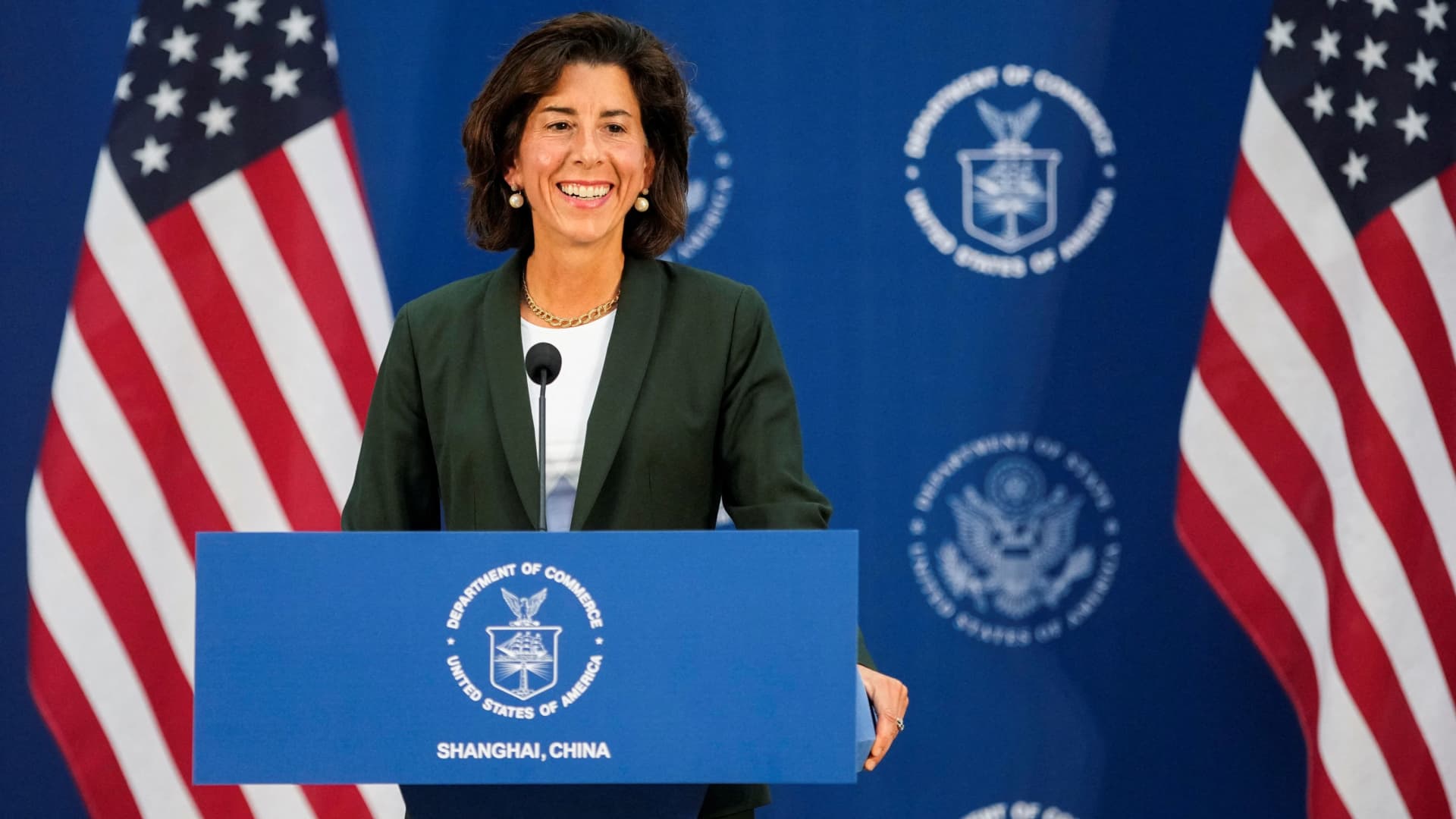BEIJING — More controls on tech exports to China will be coming as needed, despite business concerns, U.S. Commerce Secretary Gina Raimondo told CNBC in an exclusive interview.
“We have to change constantly,” Raimondo told CNBC’s Morgan Brennan over the weekend on the sidelines of the Reagan National Defense Forum.
“I know that’s hard for industry. They want a clear line in the sand,” the commerce secretary said. “The truth of it is though, technology changes, China changes and we have to keep up with it.”
In October 2022, the U.S. Department of Commerce’s Bureau of Industry and Security announced sweeping export controls that restrict the ability of companies to sell certain advanced computing semiconductors or related manufacturing equipment to China.
“It was a bold move, but we thought it was necessary because these semiconductors are unbelievably powerful, and we can’t afford to let them get into the wrong hands,” Raimondo said, acknowledging that “the threat from China is large and growing.”
The U.S. has said it’s focused on restricting China’s military, but the controls also come as both countries seek to develop their artificial intelligence capabilities in the wake of OpenAI’s launch of ChatGPT.
During a defense forum panel Brennan moderated on Saturday, Raimondo also said she is working on a new way to restrict China’s access to certain technologies by setting up “a continuous dialogue” between business and government engineers.
“If you redesign a chip around a particular cut line that enables [China] to do AI I’m going to control it the very next day,” Raimondo said.
U.S. chipmaking giant Nvidia last month reportedly delayed the launch of a new AI chip for China that had been designed to technically comply with U.S. export controls.
What I cannot have industry do is in any way violate the intention of our export controls.
Gina Raimondo
U.S. Commerce Secretary
“We’re in touch with Nvidia,” Raimondo said in the interview with CNBC. “They are crystal clear. They don’t want to violate our export controls. And you know, we want them to sell chips to China. That’s fine. They just can’t sell the most sophisticated AI chips to China.”
When asked about Raimondo’s comments on blocking certain China chip sales, Nvidia said in a statement to CNBC: “We are engaged with the U.S. government and, following the government’s clear guidelines, are working to offer compliant data center solutions to customers worldwide.”
Nvidia has been one of the most high-profile companies affected by U.S. export controls since its advanced semiconductors are widely used for training artificial intelligence models. The company warned in August last year it could lose $400 million in potential sales in China due to U.S. restrictions.
Raimondo told CNBC she is considering similar controls on the “most sophisticated AI and all the products that flow from that,” as well as biotechnology and quantum computing.
“What I cannot have industry do is in any way violate the intention of our export controls,” she said. “They have to follow the rule and the spirit of the law. And as long as they, or any company, does that, it’s fine.”
‘Always be ahead’
U.S. President Joe Biden, who is up for reelection next year, signed a bill last year aimed at supporting U.S. semiconductor development with tens of billions of dollars.
The Chinese government has meanwhile doubled down efforts to build up its own semiconductor and tech industry.
Raimondo told CNBC “it’s not realistic” to think the U.S. can stop China’s technological development, but rather that the goal was “slowing them down.”
“We still sell billions of dollars a year in semiconductors to China,” she said. “We just cannot let them access the most sophisticated, cutting edge artificial intelligence chips.”
“Ultimately, we just have to run faster. Do more, run faster, so we can always be ahead.”
— CNBC’s Kristina Partsinevelos contributed to this report.
